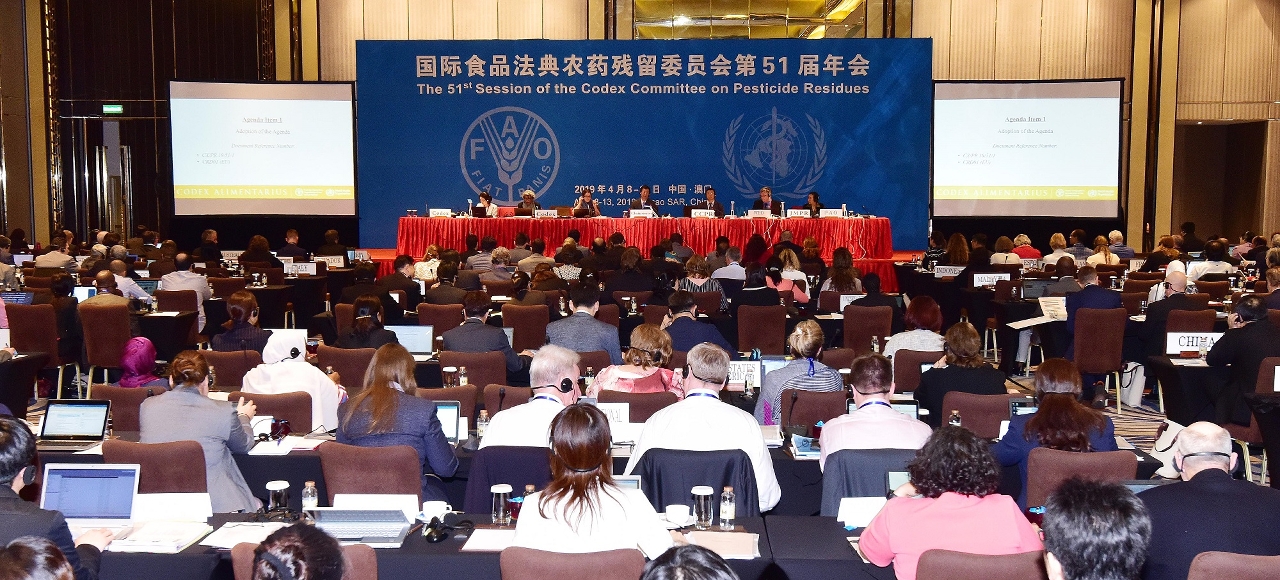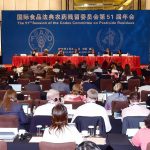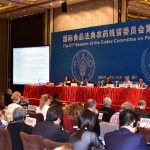 The 51st Session of Codex Committee on Pesticide Residues was held in Macao successfully
The 51st Session of Codex Committee on Pesticide Residues was held in Macao successfully
The 51st Session of Codex Committee on Pesticide Residues (CCPR) was successfully held in Macao for 6 consecutive days. Consensus on various issues was reached with the active participation of all participating countries and organisations, and the desired objectives of the session were achieved. The Municipal Affairs Bureau (IAM) participated in this year’s session as a member of the delegation of China to learn about the latest global trends in pesticide residue limits, which assists the establishment of food safety standards that meet international requirements in Macao. The standard of “Maximum Limits of Pesticide Residues in Food” will be issued this year to further strengthen the specifications of food safety standards in Macao.
Organised by the Ministry of Agriculture and Rural Affairs of the People’s Republic of China, undertaken by the Institute for the Control of Agrochemicals of Ministry of Agriculture and Rural Affairs of the People’s Republic of China and co-organised by IAM of the Macao Special Administrative Region, the 51st Session of Codex Committee on Pesticide Residues was held in Macao for 6 consecutive days from April 8 to 13. More than 300 representatives of 49 member countries, 1 member organisation (European Union) and 12 international organisations participated in the session this year. A total of 17 issues and over 360 drafts of maximum residue limits of 33 pesticides in animal and plant products were reviewed. During the six-day session, consensus on various issues was reached with the active participation of all participating countries and organisations. The session was completed successfully and the desired objectives of the session were achieved.
This session of CCPR was held in Macao. With the support from the Ministry of Agriculture and Rural Affairs of the People’s Republic of China, IAM participated in this session as a member of the delegation of China. This is beneficial to understanding the focus of work of the Codex Alimentarius Committee and latest news about the standards, as well as keeping track of the global trends in changes of standards. It also facilitates the establishment of communication channels with food safety supervisory departments of various countries, providing assistance in further studies on international food safety standards.
Furthermore, the establishment of the standard of “Maximum Limits of Pesticide Residues in Food” in Macao is in progress as planned and it will be issued within this year. When setting the standard of pesticide residues, the staff of IAM had technical exchanges with concerned experts to facilitate the establishment of a set of food safety standards that meets international requirements in Macao. Starting from 2013, a number of food safety standards have been established and issued in succession. Together with the “Maximum Limits of Pesticide Residues in Food” to be issued soon, the system of food safety standards in Macao has basically been constructed. In the future, IAM will update the various food safety standards timely in response to developments so as to reinforce the degree of food safety protection in Macao.
IAM will continue to gain international and regional food safety information through different platforms, strengthen communication with local food industry, and increase the industry’s knowledge of various standards and guidelines through diversified training courses on food safety. Detailed content of the Food Safety Law, standards and guidelines have been uploaded to the Food Safety Information website www.foodsafety.gov.mo.





